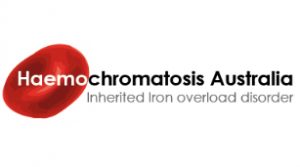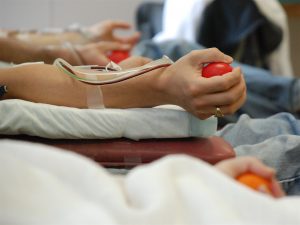
Volunteer run support organization providing information, videos, resources and support for people affected by haemochromatosis (inherited iron overload disorder).
Role of pathology in Haemochromatosis
Haemochromatosis affects 1 in 200 Australians. It is a genetic condition that causes an excess of iron in the body and left untreated can cause damage to vital organs and premature death. Fortunately, treatment is simple – regular venesection, which is similar to donating blood.
Accurate diagnosis of Haemochromatosis is completely reliant on pathology tests. If blood tests reveal iron levels are high, diagnosis is confirmed by genetic tests done by pathology. Once diagnosed, regular pathology tests monitor iron levels and guide frequency of venesection.
When giving blood is for the donor

Giving blood, known as therapeutic venesection, is the only way to treat haemochromatosis. It is a simple procedure that involves up to 500ml of blood being taken, in order to reduce the patient’s iron levels and prevent them from climbing too high.
